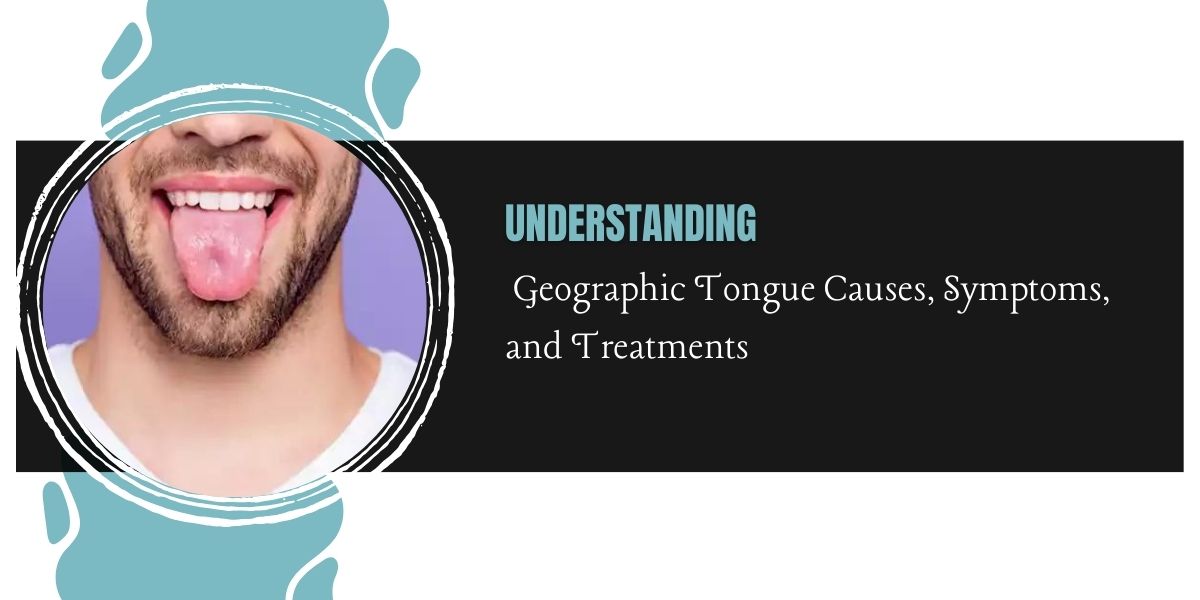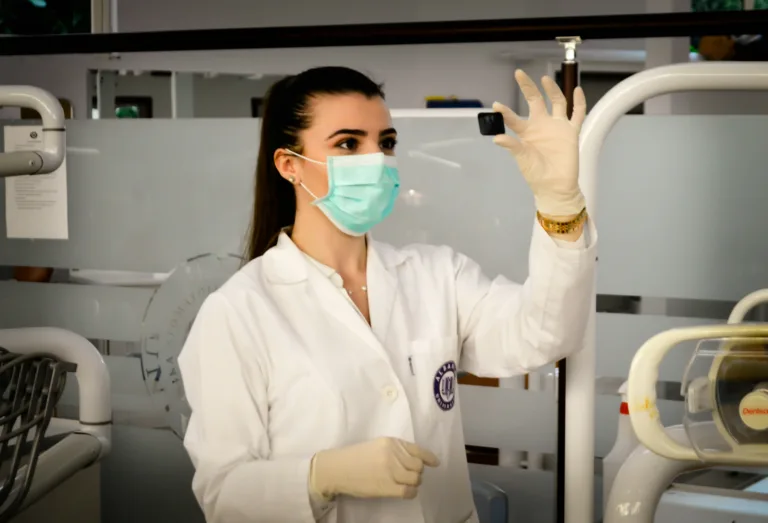Understanding Geographic Tongue: Causes and Treatments
Geographic tongue, also known as benign migratory glossitis, is a common and harmless condition that affects the surface of the tongue. It gets its name from the map-like pattern it creates on the tongue with irregular patches or spots that come and go. At Smile Clinic London, we often receive questions about what causes geographic tongue and how to find relief from its sometimes uncomfortable symptoms. This blog will cover everything you need to know about getting treatment and aftercare for geographic tongue.
What Causes Geographic Tongue?
While the exact cause of geographic tongue is unknown, it is believed there may be multiple contributing factors. Geographic tongue tends to run in families, indicating a possible genetic component. Environmental triggers like stress, hormonal changes, smoking, spicy or acidic foods, trauma or irritation to the tongue, allergies, nutritional deficiencies, and infections have all also been suggested. The patches form when the thin layer of skin cells on the tongue’s surface (filiform papillae) grow abnormally or slough off. This exposes the underlying connective tissue which then gets colonized by different bacteria, causing a change in color and texture.
Common Symptoms
The patches and spots that form can vary greatly in size, shape, color, and location on the tongue:
- Irregular smooth, red patches with a white or light-colored border
- Tongue tenderness or pain, often triggered by hot, acidic, salty, or spicy foods
- A burned or scalded sensation on the tongue
- Frequent changes in the pattern and location of patches
- Symptoms may come and go, with periods of remission
While geographic tongue itself causes no serious health issues, the symptoms can impact quality of life and enjoyment of foods. The sensitivity and pain can also influence speech, swallowing, and maintaining good oral hygiene.
Getting Examined and Diagnosed
If you notice sudden unexplained changes to your tongue, it’s important to get examined by your dentist or doctor. They can diagnose geographic tongue through visual inspection and help rule out other potential causes with similar appearances, like oral thrush, leukoplakia, or oral lichen planus. Special tests are not normally needed for diagnosis. Keeping your practitioner updated helps them monitor and determine if biopsy is ever needed.
Treatment and Relief Options
The good news about geographic tongue is that no specific treatment is required in most cases. Here are some helpful tips for managing flare-ups at home:
- Avoid triggers like spicy, salty, acidic or hot foods during active episodes
- Use toothpaste for sensitive teeth
- Apply over-the-counter numbing gels like Orajel before meals
- Gently brush with a soft-bristle brush
- Stay hydrated and rinse with baking soda and saltwater
- Take antihistamines if allergies are a factor
- Reduce stress and quit smoking
For severe or persistent cases, prescription anti-inflammatory medication, vitamins, or steroids may provide relief. If symptoms continue to disrupt your quality of life, surgical procedures are sometimes recommended as a last resort. This may involve removing the top layer of skin cells causing the patches.
New Emerging Treatments
As research on geographic tongue continues, new treatment approaches are emerging. Recent studies show promise for a range of natural supplements and probiotics for reducing inflammation and symptoms:
- Zinc supplements to strengthen the tongue lining
- Probiotic strains like Lactobacillus acidophilus and Bifidobacterium to inhibit harmful bacteria overgrowth
- Aloe vera juice to reduce redness and soreness
CoQ10 antioxidant to protect cell health
Omega-3 fish oils to reduce swelling and sensitivity
Always consult your health provider before starting any new supplements, especially if you have allergies or other medical conditions. Track your dosages and symptoms to determine if these alternatives make a helpful difference for your geographic tongue flare-ups.
Coping Tips During Flare-Ups
Living with geographic tongue means coping with the unpredictability of symptom flare-ups and remissions. During challenging episodes, be patient with your tongue and yourself. Some helpful coping tips include:
- Choose cool, soothing foods like popsicles, ice cream, smoothies, and cold fruit
- Avoid acidic, salty, spicy, crunchy, and excessively hot foods
- Drink plenty of cool water and hydrating drinks like herbal tea
- Rinse your mouth with a baking soda, hydrogen peroxide, and water solution
- Suck on ice chips or popsicles before and after eating to numb pain
- Ask your dentist about prescription numbing gels for mealtimes
- Take over-the-counter pain medication as needed
- Apply aloe vera gel or oil to soothe red inflamed patches
- Gargle with tea tree oil and coconut oil mixes to inhibit bacteria
- Avoid irritants like tobacco, alcohol, mouthwash with alcohol
- Go dairy-free for 2 weeks to identify if allergies or sensitivities are a trigger
The emotional toll during a flare-up can be significant. Reach out to loved ones, join a support group, or speak to a counselor. Getting the right treatment plan to identify your triggers and manage symptoms makes all the difference.
Ongoing Prevention and Care
While geographic tongue will likely come and go lifelong, most cases do gradually become less symptomatic over time. Proper at-home care combined with regular dental cleanings and check-ups allows you to best manage flare-ups.
Follow these tips for prevention and maintenance:
- Attend regular dental cleanings every 6 months
- Get dental concerns like cavities, ill-fitting crowns, etc treated promptly
- Brush gently twice a day with a soft or extra-soft bristle brush
- Floss once daily, avoiding irritation of the tongue
- Scrape very gently when using a tongue scraper
- Stay hydrated and drink 8 or more glasses of water daily
- Take any supplements recommended by your health providers
- Note flare-up frequency, severity, triggers and what helps in a journal
- Follow up annually with your dentist to monitor condition
Our knowledgeable dentists at Smile Clinic London are always available to answer your questions and help create an appropriate geographic tongue London , In The UK plan for your situation. We look forward to seeing your smile, geographic tongue and all!







